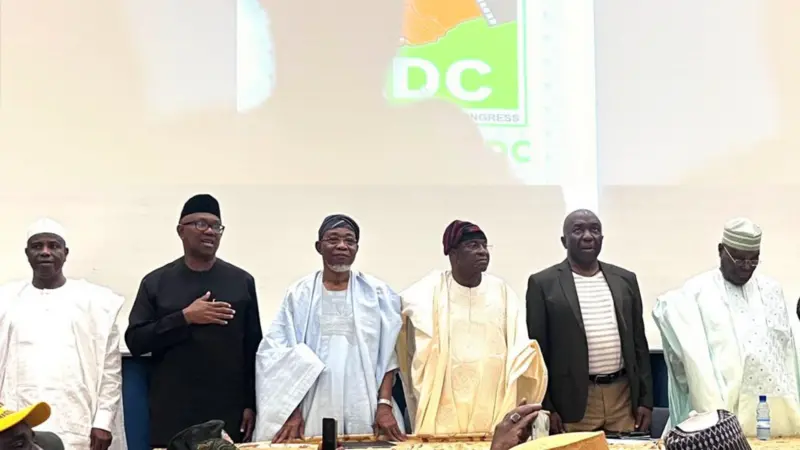
The Federal Government has foreclosed any chances of imposing additional taxes on the individual citizens and corporate bodies to avoid additional burden on Nigerians in order to fund the 2016 budget in view of the dwindling price of crude oil in the international market.
Minister of Budget and Planning, Senator Udoma Udo Udoma while giving this assurance that government will not impose additional taxes on individual and corporate bodies to avoid additional burden on Nigerians, hinted that: “We expect about 20% increase in VAT collection, which is conservative in terms of our revenue projections. We are expecting much more than that.”
However, analysts have suggested that there is need for government to take more proactive measures in its quest to boost revenue ultimately.
Why government needs to watch taxes
In the view of these experts, there is need for government at all levels to take a proper look at its tax regime if the economy must grow as a matter of course.
A new report released last week by ActionAid International shows that Nigeria is one of 25 African and Asian lower-income countries that are losing billions of dollars annually through unfair tax treaties.
The report tagged: ‘Mistreated: How shady tax treaties are fuelling inequality and poverty’, indicated that Nigeria has “the highest number of very restrictive modern era treaties that risk severely limiting their taxing power.”
The report, which was released in London, showed that Nigeria is tied with her West African neighbours Côte d’Ivoire and Senegal with six restrictive tax treaties each, while Ethiopia with thirteen has the highest number of restrictive tax treaties on the African continent.
Globally, Bangladesh topped the restrictive tax treaties’ table with eighteen treaties. Guinea, Mali, and Papua New Guinea are tied at the bottom of the table with each of the three countries saddled with two treaties apiece.
Commenting on the implications of developing countries like Nigeria being burdened with restrictive tax treaties, Ojobo Atuluku, Country Director of ActionAid Nigeria described the situation as “exploitative and at variance with the global drive to end inequality.”
Meanwhile, in a blog post explaining the implications of the restrictive tax treaties, ActionAid’s International Tax Campaign Manager, Savior Mwambwa, said the organisation’s research “has cracked open the opaque tax treaties system and revealed three main problems.
“First problem – the lost revenue problem: Around the world, developing countries are losing billions in revenue thanks to tax treaties. This is depriving them of money desperately needed to fund health, education and other essential services that fulfil the rights of women and girls.”
Mwambwa’s blog, posted on the ActionAid International website, further cited inequality as the second problem with restrictive tax treaties.
He wrote: “Many tax treaties between lower and higher income countries are unfair and take away more tax rights from the lower income country, often ensuring that money flows untaxed from poor to rich countries. This can only worsen global inequality.”
In concluding her comments, Atuluku, called for “the cancellation of restrictive tax treaties as they are unfair, unconscionable and designed to perpetuate the inequality gap between developed and developing countries.”
FIRS uncovers unpaid taxes
Federal Inland Revenue Services, FIRS, at the weekend disclosed that two major oil marketers engaged by Petroleum Pricing Marketing Company, PPMC, for the crude oil for petroleum products otherwise called ‘oil swap’ failed to pay taxes worth $651 million in four years.
From the amount, Transfigura defaulted in paying taxes worth $642,536,470, while Duke Oil owes $4.7 million on imported petroleum products under the swap deal between 2010 and 2014.
FIRS Director, Olayemi Ajayi, gave the information while addressing the House of Representatives Ad-hoc Committee investigating oil swap agreement estimated at $24 billion.
While giving update on the activities of Customs on importation of petroleum products into the county, Anthony Ayalogu, NCS Assistant Comptroller (Trade and Tariff) informed the committee that Customs had been prohibited from participating in the verification and ascertaining the actual petroleum products imported into the country through a letter from a former Permanent Secretary in the Federal Ministry of Finance since 2008.
Worried by the security implication of the purported letter, Chairman of the Committee, Zakari Mohammed, directed that the letter be set aside immediately.
He mandated the Comptroller General of Customs to verify and ascertain vessels importing petroleum products into the country.
A member of the committee, Toby Okechukwu, alleged that Transfigura did not import any petroleum products into the country.
According to him, the findings led to the investigative public hearing.
Okechukwu, who expressed concern over the security implication of the exclusion/suspension of Customs from its constitutional functions, argued that continuous breach of the Excise and Duties is not healthy for the Nigerian economy.
Speaking at an interactive session with tax stakeholder, Action Aid’s Policy Advocacy and Campaigns Manager, Tunde Aremu disclosed that three multinational companies involved with the Nigerian Liquified Gas enjoyed tax holiday amounting to $3.9b.
He also described tax incentives enjoyed over the years by multinationals operating in the country as theft because the incentives were not only unnecessary but manipulated.
Aremu’s position was supported by European Commission’s consultant, Mitchel Lecomte, who said the aims of encouraging Foreign Direct Investments (FDI) into developing countries have been defeated with the quantum of funds involved.
Meanwhile, Executive Chairman, FIRS, Mr. Tunde Fowler, said it had set specific strategies to increase tax collection to drive its proposed targets in 2016.
Mr. Fowler stated this in a document he signed and made available in Abuja at the weekend.
He said the overall target was to ensure that Value Added Tax, VAT, and Corporate Income Tax, CIT, become the largest contributors to tax collection in 2016.
Fowler said in ensuring that VAT and CIT contributed more, the service would also ensure that collections from other taxes were significantly increased.
The chairman said the strategies to achieve its targets included ensuring a minimum of 90 per cent compliance across all tax types and all taxpayer categories.
He said the service would achieve 90 per cent compliance by increased focus on sector based audits to ensure that all audit backlogs were cleared.
Fowler said FIRS would ensure maximum possible registration of taxpayers and would ensure the use of technology to block leakages and improve efficiency in collection.
According to him, the service planned to improve in-house capacity building by training and re-training of staff sectors to improve working relationship with state boards of internal revenue on data sharing and joint audits.
The chairman said the service had begun extensive nationwide tax audit to ensure strict compliance with the provision of tax laws.
Fowler added that the service also planned to carry out extensive nationwide tax compliance in 2016.
A lawmaker’s growing concern
In the view of a member of the House of Representatives, Kehinde Odeneye (APC, Ogun), tax incentives and tax holidays for multinational companies are detrimental to the economic growth of the country.
Odeneye said the need to discourage or eliminate tax incentives and holidays was because they amounted to deliberate waste of much-needed funds by a Federal Government in need of funds to fix its decaying infrastructures and ailing economy.
“Looking at our tax laws, there are so many loopholes that have been manipulated which makes it expedient to be amended for a good tax environment. The time is now to review it, and it is going to be holistic cutting across all sectors, telecommunications, oil and gas, maritime, power, no sector would be excluded in the audit and review.”
Way forward
Meanwhile, ActionAid International recommended in its new report that, “Tax treaties that restrict the tax rights of low and lower-middle income countries should be urgently reviewed.” Additionally, the organisation also suggested that, “All governments should subject treaty negotiation, ratification and impact assessments to far greater public scrutiny.”
The third recommendation states, “All governments should consider the development implications of their tax treaties,” while the last urges that, “Multinationals should be transparent about their interactions with developing country lawmakers and officials regarding treaty terms.”





















